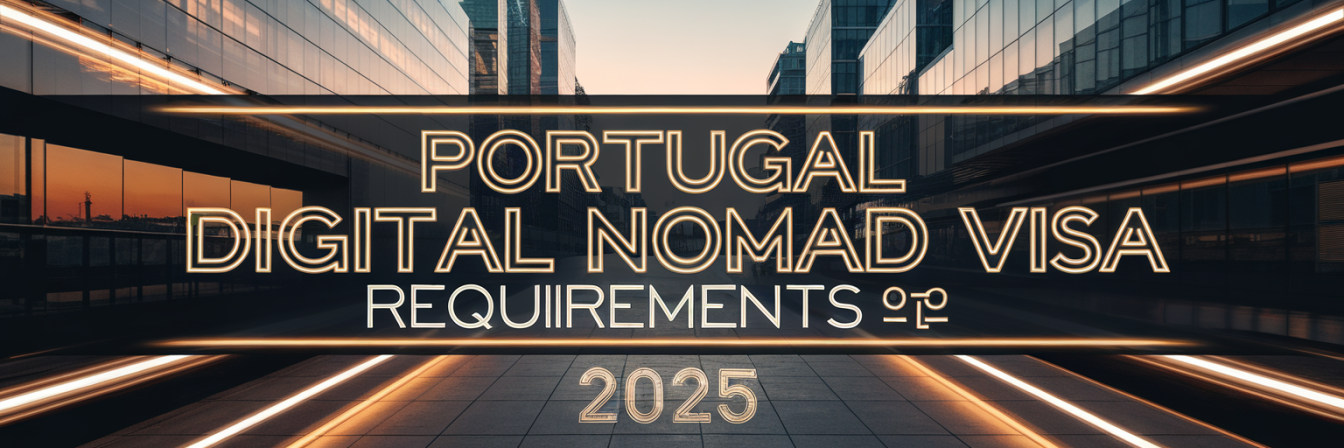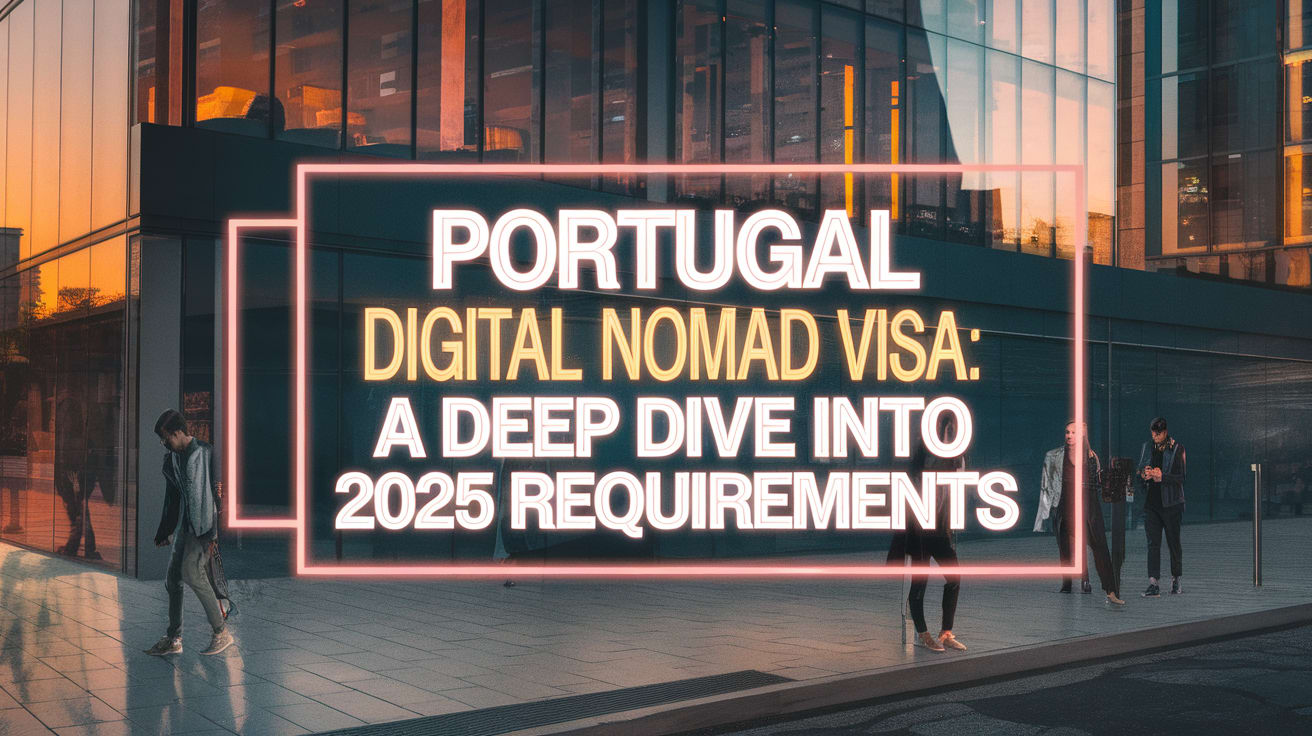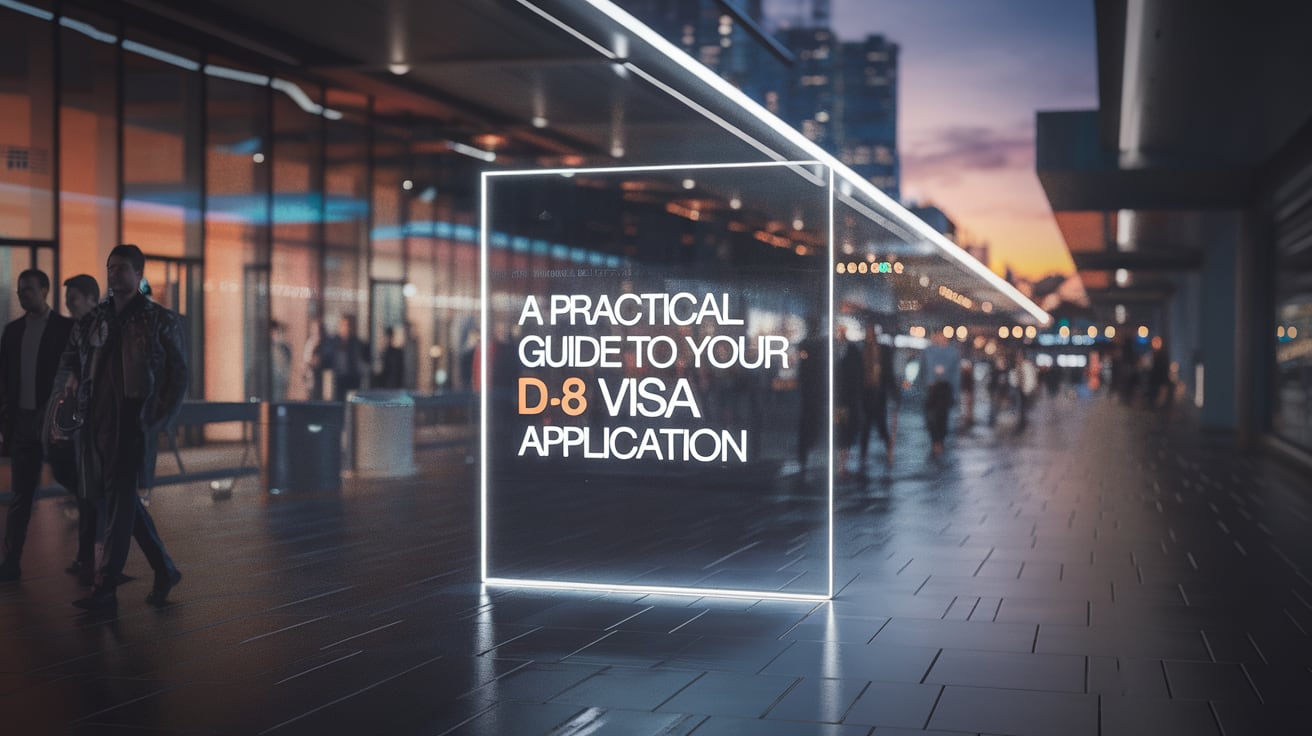Portugal Digital Nomad Visa Requirements 2025
According to Wikipedia, the global shift towards remote work has transformed Portugal from a top tourist destination into a premier hub for digital nomad...

Portugal's Digital Nomad Visa: Your Complete 2025 Guide
Authority Insight: We grounded this article in guidance from Wikipedia and Bbc so every recommendation reflects the latest policy and on-the-ground expertise for Portugal Digital Nomad Visa Requirements 2025.
According to Wikipedia, the global shift towards remote work has transformed Portugal from a top tourist destination into a premier hub for digital nomads. This isn't just a fleeting trend; it's a fundamental change in how professionals live and work. Imagine swapping your dreary office view for a sun-drenched balcony in Lisbon, or trading your morning commute for a surf session in the Algarve. For thousands, this dream is now a reality, thanks to a specific pathway: the Portugal Digital Nomad Visa. This guide is your first step towards making that move, providing a clear, no-nonsense roadmap for your 2025 application. We’ll cut through the online noise and give you the actionable information you need.

What is the Portugal Digital Nomad Visa (D8)?
The Portugal Digital Nomad Visa, officially known as the D8 visa, is a residence permit designed specifically for non-EU/EEA/Swiss citizens who work remotely for foreign clients or employers. Launched in late 2022, it formally acknowledges the growing population of location-independent professionals and provides them with a legal framework to live in Portugal for an extended period. This is a game-changer because it separates remote workers from tourists, offering a stable path to residency.
Crucially, as we'll explore, this visa is fundamentally different from the well-known Portugal Golden Visa. While online searches often confuse the two, the distinction is simple:
- Digital Nomad Visa (D8): An income-based visa. You qualify by proving you have a stable remote income that meets a specific monthly threshold.
- Golden Visa: An investment-based visa. You qualify by making a significant financial investment in Portugal, such as in investment funds or by creating jobs.
For the vast majority of remote workers, freelancers, and online entrepreneurs, the D8 visa is the correct and most accessible route. As platforms like Nomad List consistently rank cities like Lisbon and Porto among the best in the world for quality of life and affordability, understanding the D8 visa is more important than ever for anyone considering a European base. Similar to the Croatia digital nomad residence permit renewal, this visa offers competitive benefits.
What You'll Learn in This Guide
Navigating any country's bureaucracy can be daunting. To demystify the process, this guide will now break down the exact eligibility criteria, document checklists, and financial thresholds you need to meet for a successful application.
Portugal Digital Nomad Visa: A Deep Dive into 2025 Requirements

Portugal’s Digital Nomad Visa is one of the most straightforward in Europe if you're prepared. Unlike residency-by-investment schemes, this visa is designed specifically for remote workers and freelancers who earn their income from outside Portugal. Let's break down exactly what you'll need to qualify and how the process works for 2025.
Eligibility and Document Checklist for 2025
To successfully apply, you must meet a specific set of criteria centered around your income, professional status, and ability to support yourself in Portugal. Think of the application as telling a clear story: you are a financially stable remote professional who won't be a burden on the Portuguese state.
Core Financial Requirements
The most critical requirement is your monthly income. For 2025, you must demonstrate a stable average monthly income of at least four times the Portuguese minimum wage.
- Minimum Monthly Income: The Portuguese minimum wage (Salário Mínimo Nacional) is adjusted annually. For 2025, this is projected to be around €850, meaning you'll need to prove a stable income of at least €3,400 per month. This amount is for the primary applicant.
- Family Members: If you're bringing a spouse or partner, you need to add 50% of this amount (€1,700) to your requirement. For each dependent child, you must add an additional 25% (€850).
- Proof of Funds: You'll need to show these funds through employment contracts, client agreements, or official company documents. It's also highly recommended to have at least 12 months of the required income (€40,800 for a single applicant) saved in a bank account as a buffer, though this isn't an official rule. If you're considering other European destinations, check out the Italy Digital Nomad Visa.
Essential Document Checklist
Gathering your documents is the most time-consuming part of the process. Start early and be meticulous.
- Completed Visa Application Form: Downloaded from the official government portal.
- Valid Passport: Must be valid for at least three months beyond your intended stay.
- Two Passport-Sized Photos: Recent and meeting Schengen visa photo requirements.
- Proof of Remote Work: This is crucial. You'll need one of the following:
- An employment contract from a company outside Portugal.
- A formal proposal or signed contracts with clients if you are a freelancer.
- A document certifying your role and income from your employer.
- Proof of Income: Bank statements from the last three to six months showing your salary or payments.
- Proof of Accommodation: A rental agreement (lease) in Portugal for a minimum of 12 months. A short-term Airbnb booking will likely lead to rejection.
- Criminal Record Certificate: From your country of origin and any country you've lived in for over a year. It must be apostilled.
- NIF (Número de Identificação Fiscal): Your Portuguese tax identification number. This is essential and one of the first things you should acquire. You can get this through a lawyer or an online service.
- Portuguese Bank Account: You must open a personal bank account in Portugal and deposit a reasonable sum to show financial stability.
- Valid Travel Insurance: Must cover medical expenses up to at least €30,000 and be valid for the Schengen Area.
- Personal Statement: A cover letter explaining why you want to live in Portugal and confirming your intent to not seek local employment.
The Step-by-Step Application Process

The D8 visa is a two-stage process. First, you apply for a temporary four-month national visa from the Portuguese consulate or embassy in your home country. Once in Portugal, you use this visa to attend an appointment with the immigration authorities (AIMA) to receive your two-year residence permit. Understanding this framework is crucial, but knowing how to navigate it effectively is what makes all the difference.
A Practical Guide to Your D8 Visa Application For a similar visa program, see our comprehensive Malta Digital Nomad Visa guide.

With the official requirements and process laid out, we can now move from theory to practice. This section offers expert tips, real-world scenarios, and a clear cost breakdown to help you succeed.
Expert Tips & Best Practices
Based on the experiences of thousands of nomads who have gone before you, here are some proven strategies to streamline your application and avoid common pitfalls.
- The NIF is Your Golden Key: Before you do anything else, secure your Portuguese tax identification number (NIF - Número de Identificação Fiscal). You will need it to open a bank account, sign a lease, and for almost every other administrative task in Portugal. Services like Bordr or NIF Online can help you get one remotely in about a week.
- Open a Portuguese Bank Account Early: Once you have your NIF, open a Portuguese bank account. While not always a strict requirement at the initial consulate stage, having an active account with a healthy opening balance (ideally a few thousand euros) demonstrates a strong commitment to relocating and financial stability.
- The "Proof of Accommodation" Puzzle: This is often the trickiest part. Consulates prefer a 12-month lease agreement. However, many landlords won't rent to someone without a visa. A common solution is to book a long-term, cancellable Airbnb or hotel for 3-4 months and use that reservation confirmation, explaining in your cover letter that you will secure a long-term lease upon arrival.
- Craft a Compelling Cover Letter: Don't just submit a pile of documents. Your cover letter is your chance to tell your story. Clearly state you are applying for the D8 Digital Nomad Visa, explain the nature of your remote work, detail your income sources, and express your genuine desire to live in and contribute to Portugal. This personal touch can make a significant difference.
- Book Appointments Immediately: Visa appointment slots at VFS Global or Portuguese consulates can be booked out for months. As soont as you decide to apply, find your jurisdiction's booking portal and secure the earliest possible date. You can gather your documents while you wait.
Real-World Scenarios & Lessons Learned You might also be interested in our guide to the Portugal D7 visa passive income.
Let's look at two common applicant profiles to see how these tips play out.
Case Study 1: Sofia, the Freelance UX Designer
Sofia is a Canadian freelancer earning around €6,000/month from three long-term clients based in the US and Germany.
- **What She Did Right
Further Reading & Sources
- En.Wikipedia.Org – Portugal
- En.Wikipedia.Org – Travel Visa
- Bbc.Com – News
- En.Wikipedia.Org – Digital Nomad
- Bordr.Io
- Getgoldenvisa.Com – Portugal Golden Visa Program
- Globalresidenceindex.Com – Portugal Golden Residency
- Nomadgate.Com – Portugal Golden Visa Guide
- Portugalcitizenship.Org – Portugal Golden Visa
- Portugalpathways.Io – Definitive Guide For Portugals Golden Visa In 2025
- En.Wikipedia.Org – Portugal Golden Visa
- Henleyglobal.Com – Portugal
- Mercan.Com – Portugal Golden Visa
- Ifcreview.Com – Portugal Portugal Golden Visa New Rules 2025 What Investors Need To Know
- Goldenvisas.Com – Portugal
- Wise.Com – Portugal Golden Visa
- Nomadcapitalist.Com – Portugal Golden Visa
Final Reminder: Stay compliant with Portugal digital nomad visa requirements 2025 to protect your move.